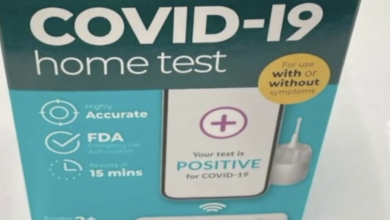
mRNA has been a game-changer for the development of a COVID-19 vaccine. It has allowed researchers to more efficiently engineer a less intrusive vaccine as it instructs your body to produce certain proteins rather than have your immune adjust to small bits of the virus it is trying to combat.
The mRNA technology has been used, in theory, since the 1990s, but the Pfizer and Moderna COVID-19 vaccines are the first time the technology has been put into practice for human use.
“It’s really fun to be part of this development,” said Sven Even Borgos, a researcher with SINTEF, one of Northern Europe’s largest research institutes. “The basic principle of mRNA is that when you deliver this code, you actually instruct the body to make its own medicine and that’s partly why it’s so fascinating.”
With the COVID-19 vaccines, the mRNA that is injected into the body instructs it to produce small bits spike protein, the main way through which the coronavirus injects itself into our cells. This way, the body recognizes the spike protein and attacks any cells that have it, such as COVID-19.
Researchers say that same mRNA technology has been a game-changer for a slew of other viruses and disorder such as cancer, sports recovery, and preexisting conditions.
“There are certain things that we could never do before without being able to use DNA, or mRNA, to put new proteins into cells,” said Bruce Zetter, the head researcher at Boston Children’s Hospital and a professor of cancer biology at Harvard Medical School.
He says mRNA is not a silver bullet, but it is a monumental step in accelerating cancer research.
“Let’s say we had a cancer cell in someone’s body and we knew it made a particular protein that normal cells don’t make,” he said. “I’ll call [that particular protein] ‘Cancer Protein 1.’ So we have CP-1, and now, what I would do is I would get mRNA to specify CP1. I’d inject it into the muscle in the arm and those cells in the muscle would make CP1 and they’d stimulate my immune system to fight any cell that had that protein.”
Currently, many cancer treatments rely on radiation to kill cancer cells. Through mRNA, however, Zetter says we are training our immune systems to act as the primary fighter.
“It’s almost like you could treat virtually any disease with it because almost all diseases in your body have a connection to a protein of some kind,” said Borgos.
Researchers say mRNA could tell the body to produce proteins to make ligaments, helping patients recovering from a torn ACL.
It could also help autoimmune disorders like hemophilia, which can causes excessive bleeding, as it instructs the body to produce a protein that allows blood to clot properly.
Just a few weeks ago, researchers in Germany injected mice with mRNA, which reduced the activity of multiple sclerosis in those mice. Currently, there is no cure for the disease.
Researchers say we are still years from any type of vaccines for these diseases but say mRNA has sped up their development considerably.
“It’s really a revolution in vaccine technology,” said Borgos.









